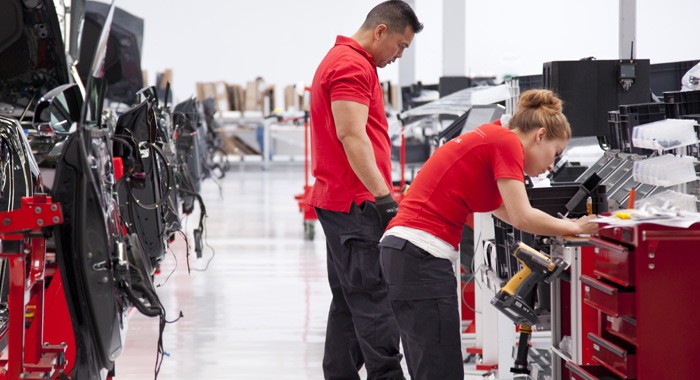
Tesla says critical safety report is another UAW hit piece
The sensational story claims Tesla left many injuries unreported to help cover up persistent problems at the Fremont factory.
Tesla has fired back at another investigative report that alleges persistent safety problems.
Mandatory injury reporting statistics from 2015 and 2016 show that the company's Fremont production plant was worse than the industry average, prompting several critical news reports and a United Auto Workers campaign to unionize the factory.
The company promised to improve safety in 2017, aiming to make the safest automobile factory in the world. CEO Elon Musk took a personal interest at the time, vowing to meet with every injured worker and personally go on the factory floor to experience any ergonomic problems.
Numbers from 2017 appear to show a significant improvement in safety. A Reveal report claims to have uncovered evidence that the numbers obscure a more concerning reality, however, with some injuries allegedly omitted from incident logs or misfiled as personal rather than work-related.
Tesla has aggressively countered the allegations, attacking Reveal for publishing a "completely false" story that aligns with a United Auto Workers misinformation campaign.
"In our view, what they portray as investigative journalism is in fact an ideologically motivated attack by an extremist organization working directly with union supporters to create a calculated disinformation campaign against Tesla," the company says.
The automaker claims to have reviewed all cases disputed by Reveal and found that all "were properly recorded by Tesla." The company suggests the journalists lack an understanding of how injury reporting works, as some injury claims are later amended if a medical professional deems the injury to have been personal rather than work-related.
The Model 3 was designed from the beginning to be easier to build than the Model S and X. The focus on unprecedented levels of automation is still a work in progress, however, requiring human labor to improvise 'bypass' operations until some of the robotic procedures can be refined.
The company admits that there are still "real issues" that continue to be dealt with, but safety is improving "with each passing month."